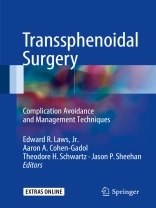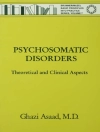This work details contemporary clinical knowledge on the multidisciplinary management of pituitary and other sellar/parasellar tumors, with a focus on surgical techniques and a particular emphasis on complication avoidance and management. International experts provide guidance on natural history, radiologic and clinical aspects, surgical indications, and resection techniques.In addition, case presentations and clinical photographs help the reader reduce the risk of error and advance their own surgical skills. Readers also have access online to streaming videos of key procedures to help them provide the best possible outcomes for every patient.
Transsphenoidal Surgery: Complication Avoidance and Management Techniques will be of great value to Neurosurgeons, Otolaryngologists, Endocrinologists, Radiation Oncologists, and residents and fellows in these specialties.
İçerik tablosu
Evolution of pituitary surgery and the transsphenoidal approach.- The History of Trans-sphenoidal Surgery for Pituitary Tumors.- Principles and Pitfalls of Anesthesia for Transsphenoidal Surgery.- Operative Indications and Pitfalls in Patient Selection for Surgery of Pituitary Tumors.- The Perioperative and Postoperative Care for Pituitary Patients.- Neuro-Ophthalmology of Pituitary Tumors.- Rhinologic evaluation of patients undergoing transsphenoidal surgery.- Imaging of the Sella and Parasellar Region.- Classification, Pathobiology, Molecular Markers, and Intraoperative Pathology.- Surgical Anatomy of the Sellar Region.- Combined Hybrid Microscopic and Endoscopic Transsphenoidal Surgery: Anatomy, Instrumentation, and Technique.- Transcranial Approaches to the Sellar and Parasellar Area.- Endoscopic Transsphenoidal Surgery: Anatomy, Instrumentation and Technique.- 3-dimensional Endoscopy for Skull Base Surgery.- Endoscopic Transsphenoidal Pituitary Surgery: Results And Complications.- Intraoperative imaging for pituitary surgery.- Closure Methods Following Transsphenoidal Surgery.- Complications with Transsphenoidal Surgery: A Review.- Rhinological Complications: Avoidance and Management.- Medical Management for Pituitary Adenoma Patients.- Transsphenoidal Surgery for Recurrent Pituitary Disease.- Transsphenoidal Surgery for Craniopharyngiomas.- Transsphenoidal Surgery for Cushing’s Disease.- Transsphenoidal surgery for acromegaly.- Transsphenoidal Surgery for Prolactinomas.- Transsphenoidal Surgery for Nonfunctioning Pituitary Adenomas.- Pituitary tumors in pediatric patients.- Pituitary apoplexy.- Anatomical Approaches to Giant Pituitary Tumors.- Postoperative Management of Patients Following Transsphenoidal Surgery.- Stereotactic Radiosurgery for Pituitary Adenomas.- Cytotoxic chemotherapy and targeted therapy for aggressive pituitary tumors.- Quality of life in patients with pituitary adenomas.
Yazar hakkında
Edward R. Laws, Jr., MD, FACS, FAANS
Department of Neurosurgery
Brigham & Women’s Hospital
Boston, MA
Aaron Cohen-Gadol MD, MSc.
Department of Neurosurgery
Indianapolis Methodist Hospital
Indianapolis, IN
Theodore H. Schwartz
Professor of Neurosurgery, Otolaryngology and Neuroscience
David and Ursel Barnes Professor of Minimally Invasive Neurosurgery
Director, Anterior Skull Base and Pituitary Surgery
Laboratory for Epilepsy Research and Imaging
Weill Cornell Medical College
New York Presbyterian Hospital
New York, NY
Jason P. Sheehan M.D., Ph.D.
Department of Radiation Oncology
Department of Neurological Surgery
University of Virginia
Charlottesville, Virginia USA












